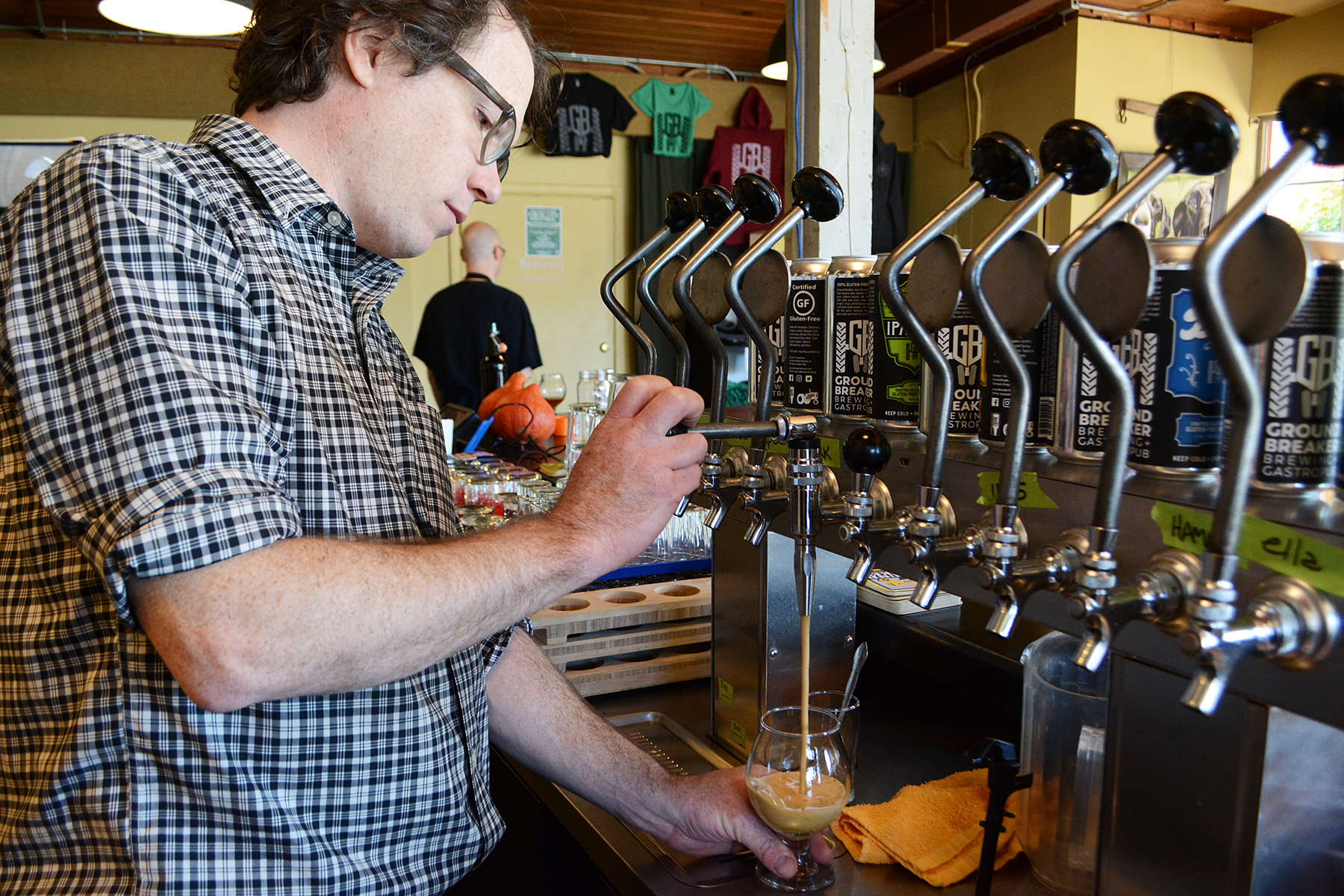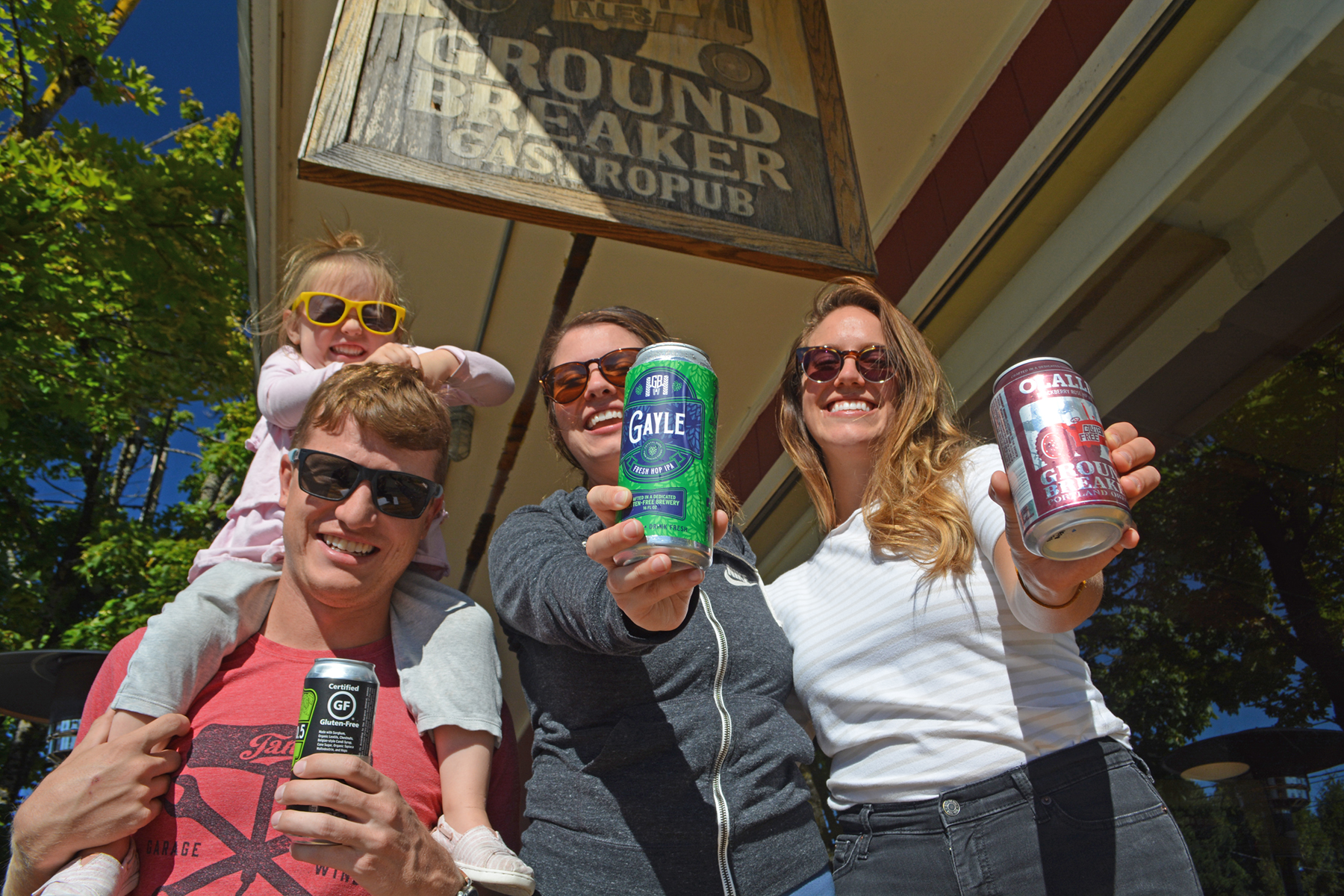When James Neumeister stumbled on a homebrew club in 2008, he turned into a beer brewing nut. But it was a friend’s Celiac Disease diagnosis a year later that inspired him to focus on gluten-free beer and establish Ground Breaker Brewing in Portland, Oregon.
[newsletter_signup_box]
Neumeister was a machinist for 15 years. In 2008, he wanted a change and enrolled in culinary school. When he found the homebrew club, he started making beer at home late into the night. “I was brewing like a maniac and packed years of brewing into one year,” says Neumeister. His efforts paid off. In 2010, he won the Widmer/Oregon Brew Crew Collaborator competition.
(New: Hop River Brewing Taps Into Fort Wayne’s Watershed Moment)
Meanwhile, a friend was diagnosed with Celiac Disease, an autoimmune disorder where ingestion of gluten results in small intestine damage. Gluten is a protein found in barley, a main ingredient in beer, as well as wheat, rye and triticale. The friend was in and out of the hospital and told Neumeister, “The worst part about it is I can’t drink beer.”
A New Career Changing Lives
Neumeister had never heard of Celiac. He started researching it, determined to make a good beer his friend could drink. “My first attempts were really bad,” he says. It motivated him.

(IN-DEPTH: Independent Craft Brewers Have a Right to Compete with Megabrewers)
Around the same time, his father-in-law died from colon cancer. Neumeister’s wife was also having problems becoming pregnant. Based on what Neumeister learned, his wife went on a gluten-free diet. She was pregnant in a month and lost a rash she had had for most of her life. “I realized a gluten-free diet changes lives,” says Neumeister. “I knew this should be my career because I can brew beer and make a difference for people.”
Ground Breaker Brewing was the first U.S. all gluten-free brewery. Operations began in November 2011, and the brewery opened the next month under the name Harvester Brewing. Due to a trademark issue with a California winery, the brewery changed its name in 2014. Consistent with its customer-centric approach, the brewery held a crowdsourcing competition for the new name.
(List: A Beer Geek’s Travel Checklist)
Certified by the Gluten-Free Certification Organization (GFCO), Ground Breaker’s definition of gluten-free is more strict than the Food and Drug Administration’s, which allows up to 20 parts per million of gluten in items labeled “gluten-free.” Ground Breaker is naturally gluten-free and doesn’t permit any gluten on its premises—in the brewery or the gastropub, which opened in September 2013.
The brewery’s first beer was a pale ale, which it still makes. Today, Ground Breaker typically has five beers in its packaged line. Over time, there have been about 25 seasonals for wide release and several hundred different beers for the taproom.

A Groundbreaking Difference
Since opening, Ground Breaker has won a medal at the Great American Beer Festival every year. It earned a silver medal at the World Beer Cup the second time it entered.
(Find: A US Brewery Near You)
Ground Breaker’s list of ingredients is much longer than the typical four of malt, hops, water and yeast. The biggest difference is the kind of enzymes to make sugars and break down proteins are lacking in most gluten-free ingredients.
“In terms of the brewing process, there’s almost zero difference,” says Tyler Kueber, who joined Ground Breaker almost five years ago and is now head brewer. “The steps are tweaked a bit in terms of times and temperatures because of the ingredients.”
(MALT SHOPPE: The Scoop on Milkshake IPAs)
Through trial and error, they’ve figured out ingredients that give the mouthful and other attributes of traditional beer. Neumeister began using chestnuts after reading about Italian brewers using the nut due to its low oil content and high carbohydrate level per weight.
“Every now and again, you get people who cry…”
Ground Breaker continues to adapt, changing ingredients to use better options as they become available and meet customers’ physical needs. For example, buckwheat is no longer considered. “We learned that lots of people with Celiac are sensitive to buckwheat,” says Kueber. “We pivot to cater to our customers.”
(MORE: What’s the Deal with Gluten-Free Beer?)
The brewery doesn’t just brew gluten-free beer. It also emphasizes research and development and prioritizes sharing knowledge with the craft beer industry and homebrewers. Earlier this year, Ground Breaker sponsored the first annual Pacific Northwest Gluten-Free Homebrewing Competition to encourage quality in gluten-free brewing and give homebrewers a chance to compete. The brewery also hosts the Zero Tolerance Gluten-Free Home Brew Club.
Ground Breaker is making a difference. “Every now and again, you get people who cry,” says Kueber. “They’re tears of joy. We get people who come to us from across the country who haven’t tasted beer for more than a decade. That’s the whole reason we got started in the first place. People had something and, due to nature, it was ripped away from them. We can bring it back to them.”
CraftBeer.com is fully dedicated to small and independent U.S. breweries. We are published by the Brewers Association, the not-for-profit trade group dedicated to promoting and protecting America’s small and independent craft brewers. Stories and opinions shared on CraftBeer.com do not imply endorsement by or positions taken by the Brewers Association or its members.


Share Post